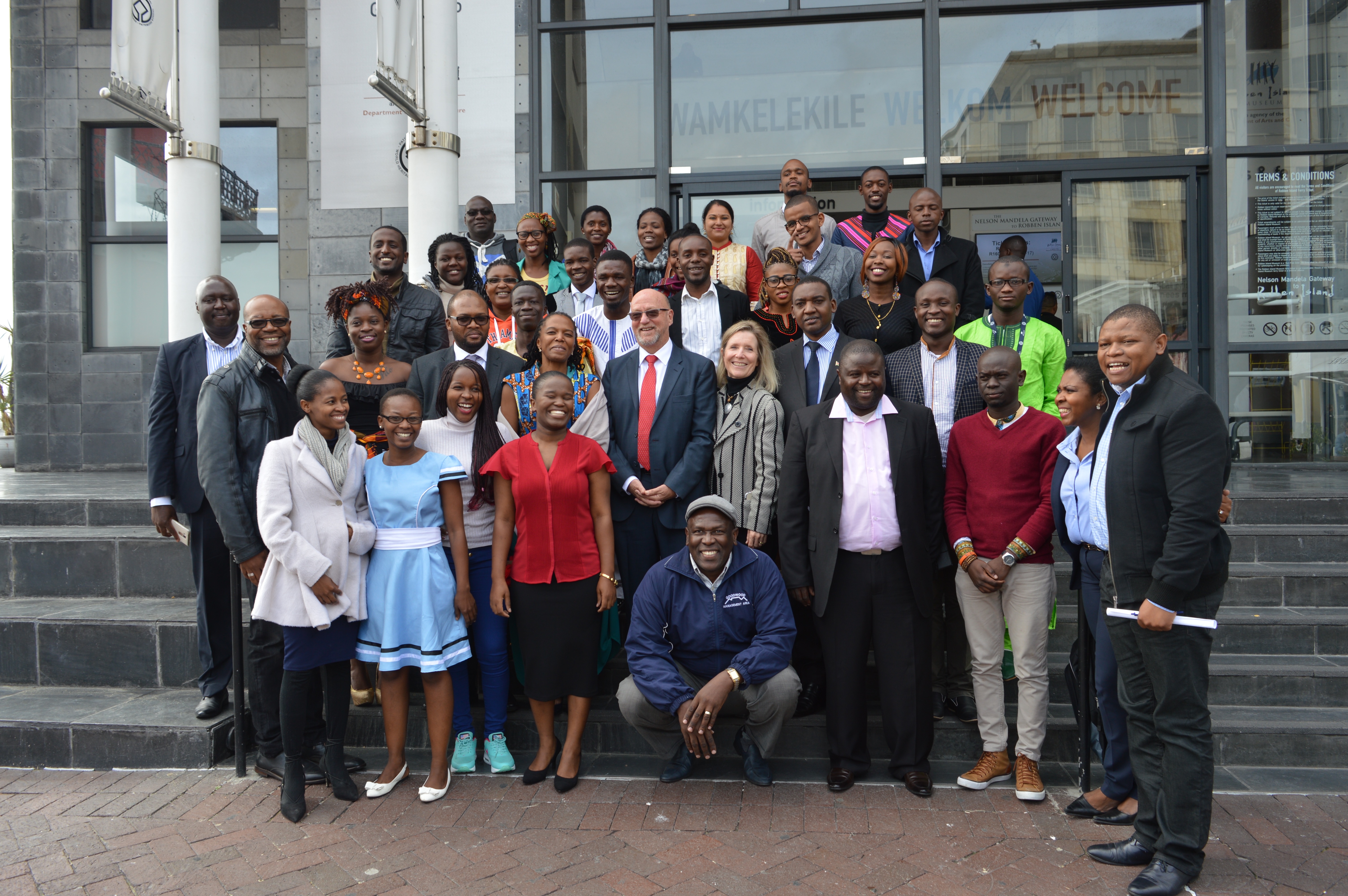
AFRICAN YOUTH DECLARATION ON WORLD HERITAGE
We, the participants of the 1st Anglophone African World Heritage Regional Youth Forum (Robben Island World Heritage site, 4 May 2016), express our sincere gratitude to the African World Heritage Fund, the UNESCO World Heritage Centre, the Government of the Republic of South Africa and the Robben Island Museum, for giving us the opportunity to be part of an amazing experience. This will enable us to share our knowledge and skills of World Heritage with the wider community.
The experience was engaging and opened our minds to procedures and discussions related to the significance of heritage conservation for sustainable development in implementing the 1972 UNESCO World Heritage Convention. The iconic Robben Island World Heritage site deepened our understanding and passion for conserving the priceless legacies that encompass ancestral values of cultural and natural heritage throughout the African continent. Moreover, we learned the importance of perseverance in addressing the many challenges facing Africa. This we hold dear to our hearts, and we will never forget.
Africa faces many challenges that affect her heritage: rapid infrastructure development, illicit trafficking, climate change, conflict situations, lack of investment in heritage and many others. We consider that the lack of investment in African youth is one of the biggest constraints limiting our participation in the efforts to balance development and conservation. We shall take it upon ourselves to engage other youths, heritage experts and national and local governments in our respective 23 countries to pursue conversations around heritage conservation. In this respect, the “each one teach one” practice used by ex-political prisoners who were confined on Robben Island should be widely promoted.
Even though local communities living around heritage sites are essential stakeholders in the conservation of their heritage, they are usually excluded in decision-making processes. We propose that State Parties raise awareness among youths in local communities through cross-cultural exchange training programmes, scholarships, internships, online engagement and workshops to increase their capacity to advocate for World Heritage conservation and sustainable management. We believe that heritage-sensitive youths from local communities should be given priority in employment processes. This will not only empower them but can also contribute to combatting the illicit trafficking of cultural goods and repatriating stolen African heritage artifacts in accordance with the 1970 UNESCO Convention on illicit trafficking and the upcoming African Union model law on the Protection of Cultural Property and/or Heritage.
African youth engagement can also be enhanced by creating youth committees both at national and regional levels. They shall be responsible for developing an African Youth Model of the World Heritage Committee as well as creating and monitoring heritage awareness projects and activities in all African countries. Such committees will contribute to sustainable World Heritage conservation as well as providing adequate information on heritage and creating innovative extracurricular activities that engage young people.
We are also concerned that in many African countries heritage education is not emphasized in school curricula. We therefore recommend that States Parties introduce and/or emphasize heritage education from basic to secondary levels. Education is paramount to building awareness and developing passion for heritage. We believe that education is a vital tool for involving youths proactively in heritage-related issues. Furthermore, integration of African heritage education at institutions of higher learning is advised. This is to say that heritage education should not be only limited to heritage within one’s own country but should rather encompass heritage of other African countries. Also, we suggest a 50 per cent discount on admission fees for African youths visiting World Heritage sites in Africa. These measures will bring us one step closer to realizing the aspiration of ‘one Africa’.
In order to fully reflect the ideas of all African young people, we recommend that the outcomes of other future African World Heritage Youth Forums be combined with those of the present forum.
Thank you!